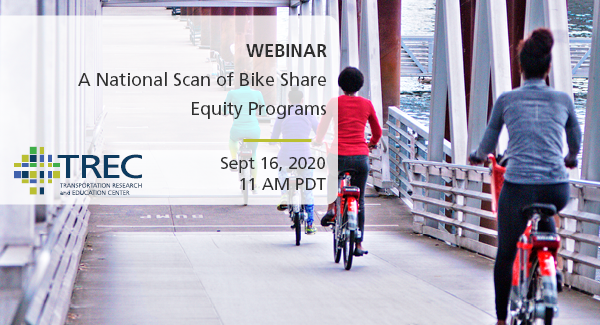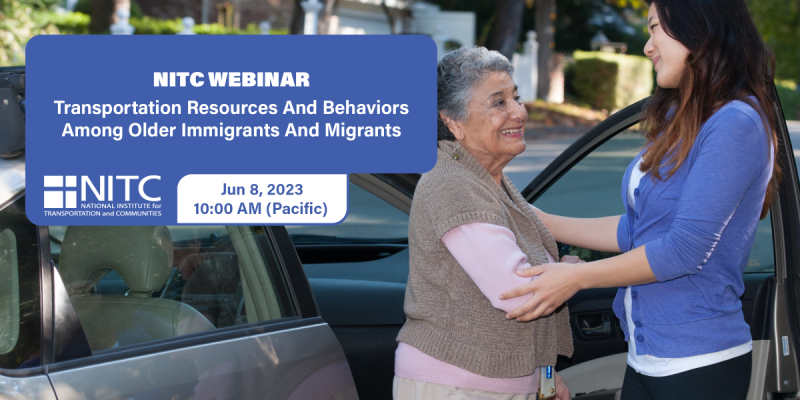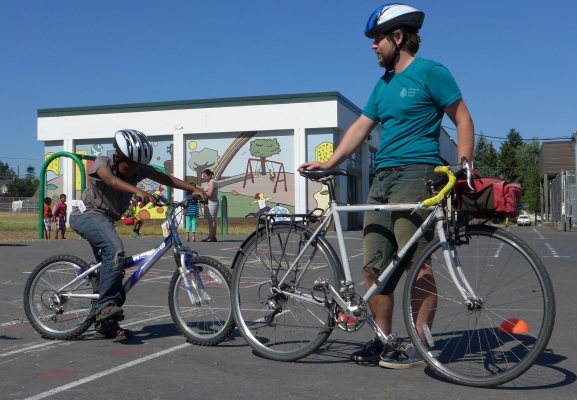PRESENTATION ARCHIVE
OVERVIEW
Connecting with cities and bike share operators from across the United States, Portland State University conducted a nationwide scan on what programs and initiatives were running to address equity in bike share. The report “National Scan of Bike Share Equity Programs” documents responses from over 70 bike share systems. This resource will help cities and operators navigate the range of actions that have been implemented to make bike share systems more equitable, examine successful strategies employed across the U.S., and understand how those successes (and challenges) are being measured and articulated. In doing so, we hope the report helps bike share systems learn from the experiences of others, innovate, and more quickly move toward greater equity. The research team will be joined by a bike share operator to discuss what they learned, best practices, and where they see the future of bike share equity programs headed.
THE RESEARCH
This webinar is based on a study funded by the Better Bike Share Partnership and the National Institute for Transportation and Communities (NITC) and conducted at...
Read moreView slides
Watch video:
With rapid urbanization in China and other developing economies around the world, it has become imperative to understand household transportation behavior and expenditures in these urban areas. The objective of this study is to examine the differences in the determinants of household transportation expenditures within two very distinct populations...
Read morePRESENTATION ARCHIVE
OVERVIEW
This presentation reports findings from a cross-sectional survey of older Vietnamese immigrants in the Dallas-Fort Worth, TX metroplex and members of a Hispanic senior center in Hartford, CT. In addition to providing a description of transportation resources and behavior, we present a method for assessing the geospatial "regular activity spaces" of older adults based on the frequency and locations of routine activities. We also present options for assessing the geospatial burden of providing rides to older adults using "ride-provision activity spaces," which entails the frequency and locations of activities for which rides are given. Finally, we discuss the association of transportation-related factors and companionship among members of the senior center in Hartford, CT. Implications for this research include land use policy, assessment for and allocation of public assistance for transportation for older adults, and transportation-related programs to address...
Read moreView slides
Watch video:
The Community Cycling Center has been at the business of broadening access to bicycling for 22 years. Far before anyone was talking about "equity" in the world of bike commuting and advocacy, the Community Cycling Center was working directly with youth of color to make...
Read moreTamika Butler (@TamikaButler), executive director of the Los Angeles Neighborhood Land Trust, will deliver the Ann Niles Active Transportation Lecture this year. She is an advocate and activist who works in support of LGBTQA rights, as well as fighting for social justice and healthy communities. She...
Read moreView slides
Watch video:
Gentrification and development are changing the face of many Portland neighborhoods. This talk will draw on data from focus groups and participatory mapping research with residents in SE and North Portland neighborhoods. The presentation will share findings on the patterns of movement reported by residents in gentrifying neighborhoods and will offer ideas and perspectives on how to plan for a sustainable future for all Portlanders.
Amy Lubitow is an assistant professor of sociology at Portland State...
Read morePRESENTATION SLIDES
Miss the presentation or want a look back at the slides? You can view them here.
WEBINAR VIDEO
This webinar will explain how app-based technologies can improve upon traditional pen-and-paper-based daily transportation diaries in terms of quantity and quality of data collected, particularly for environmental justice populations. The researchers will describe their own efforts, working on an inter-disciplinary team, to develop a custom-designed app, MyAmble, that measures the impact of transportation disadvantage more broadly across access to basic resources, opportunity to participate in wider society, and quality of life. MyAmble includes several innovations – daily digital trip planning, a text-messaging-based qualitative interview tool, and a challenge logger enabling participants to document real-time transportation barriers through videos and photos. Viewers will learn pragmatic strategies for implementing similar app-based ecological momentary assessment transportation data collection tools. In addition, researchers will share lessons learned from working on a technology-based interdisciplinary team.




